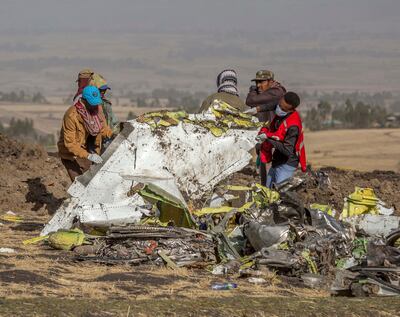Plenty of words have already been written comparing the ups and downs of Boeing to the rise and fall of American manufacturing and corporate power over the past quarter century.
The US aerospace company’s experience has also been contextualised by the peaks and troughs of globalisation. As the scale of supply chains has widened and prices have until recently been on a downward curve, the companies that started and dominated industries in the 20th century faced the tough choice between staying competitive and maintaining historic traditions and standards but risking the loss of market share.
It’s fair to say that Boeing has now become a business school case study of how not to navigate that challenge. There is a kind of management morality tale at work. There is also still hope that there is a redemption arc to come.
It will be a long road back for its reputation after the guilty plea to a criminal fraud conspiracy charge, settling the US government inquiry into the 737 Max crashes in Indonesia and Ethiopia in 2018 and 2019, which resulted in the deaths of 346 people.
A fine of $243.6 million has been levied to conclude the US Justice Department’s investigation and a further $455 million will need to be spent by Boeing over the next three years to strengthen its compliance and safety programmes.
Boeing is now set to become a convicted felon. Its every misstep will be highly scrutinised. It will need to be perfect in a business in which there is so much risk. Just this week, there was another incident when a wheel fell off one of its aircraft on take-off at Los Angeles International Airport.

The heaviest irony of Boeing’s woes is that they have come despite an era in which people are flying more than they ever did and so planes and airlines – Boeing’s bread and butter – are as in demand as they have ever been.
What this experience has also made clear is that the ability to run a business in an ethically sustainable fashion isn’t always down to the health of a sector or the dynamics of supply and demand. By far the most important factor for long-term success is the state of a company’s internal culture. On this front, the most pertinent issue, it seems, has been what an expert panel reviewing Boeing’s safety management processes called a “disconnect” between senior management and its employees, Reuters reported in February.
There was “a lack of awareness of safety-related metrics at all levels of the organisation … [and] an inadequate and confusing implementation of the components of a positive safety culture”.
According to many analysts and observers, Boeing’s top management had since the 1990s prioritised so-called shareholder value, rewarding investors with buybacks built on cost-cutting, outsourcing and losing touch with the values of high-quality engineering prowess that the company was built on, going all the way back to its pre-First World War origins and through the jet age that Boeing heralded before its corporate compass lost sight of its North Star.
That’s literally a microcosm of what has happened to the broader manufacturing base in the US that led the world economy.

Meanwhile, there have been winners in other regions, especially in Asia and the Middle East. A prime example of a company that has capitalised on the boom in air travel – and a leading Boeing customer – is Emirates. The airline’s president, Tim Clark, told Bloomberg in June that he believed it would be “one step at a time” for Boeing to ultimately arrive at a point where it might see better days again.
“We have an existential problem at the moment … For me, this will be a five-year hiatus starting from now … can it be done? Of course it can be done. I mean they always did, didn’t they. Safety … or quality control wasn’t something you thought about … We know they can design great airplanes. Is it fixable? Of course it’s fixable. But don’t rush things.”
The answer to creating a better culture at Boeing is also straightforward, according to Mr Clark. Top management has “fingerprints on everything [at Emirates] … there is not a thing that goes on, on a day-to-day basis … without us knowing something about it”.
Mr Clark highlighted the strength of Boeing’s “dynastic” domestic workforce and urged the company to double down on this attribute rather than seeking cheaper options elsewhere in the world.
Ultimately, if Boeing was able to follow through on reinstating the prominence of its employees ahead of shareholders, it would represent a reversal of a trend that has influenced not just the US economy but also one that has had a seismic impact on the political landscape as jobs have shifted abroad.
In an election year, there is a huge opportunity for a former titan of the American Dream to begin to rebuild the faith in it.


